Choosing a Pressure Washer
Overview
What does a pressure washer do?
A pressure washer takes water from your garden hose or a water tank and uses an electric or combustion powered pressure pump to force the water through a narrow nozzle, thereby increasing the water pressure and velocity. High pressure washers deliver SUPER cleaning power and use less water than simply running the hose. A pressure washer can strip mud, grime, mould, algae, moss and even remove paint. The best pressure washer models often come with interchangeable nozzles to change the spray pattern and pressure of the water to suit these tasks.
Types of pressure washers
In choosing the right pressure washer you will come across a few different types.
Consumer gradeMost likely you’ll just need a high quality consumer grade pressure washer. These are the best pressure washer for cars, driveways, and use around the home. Most of these are electric pressure washers, but a few petrol pressure washers are also available.
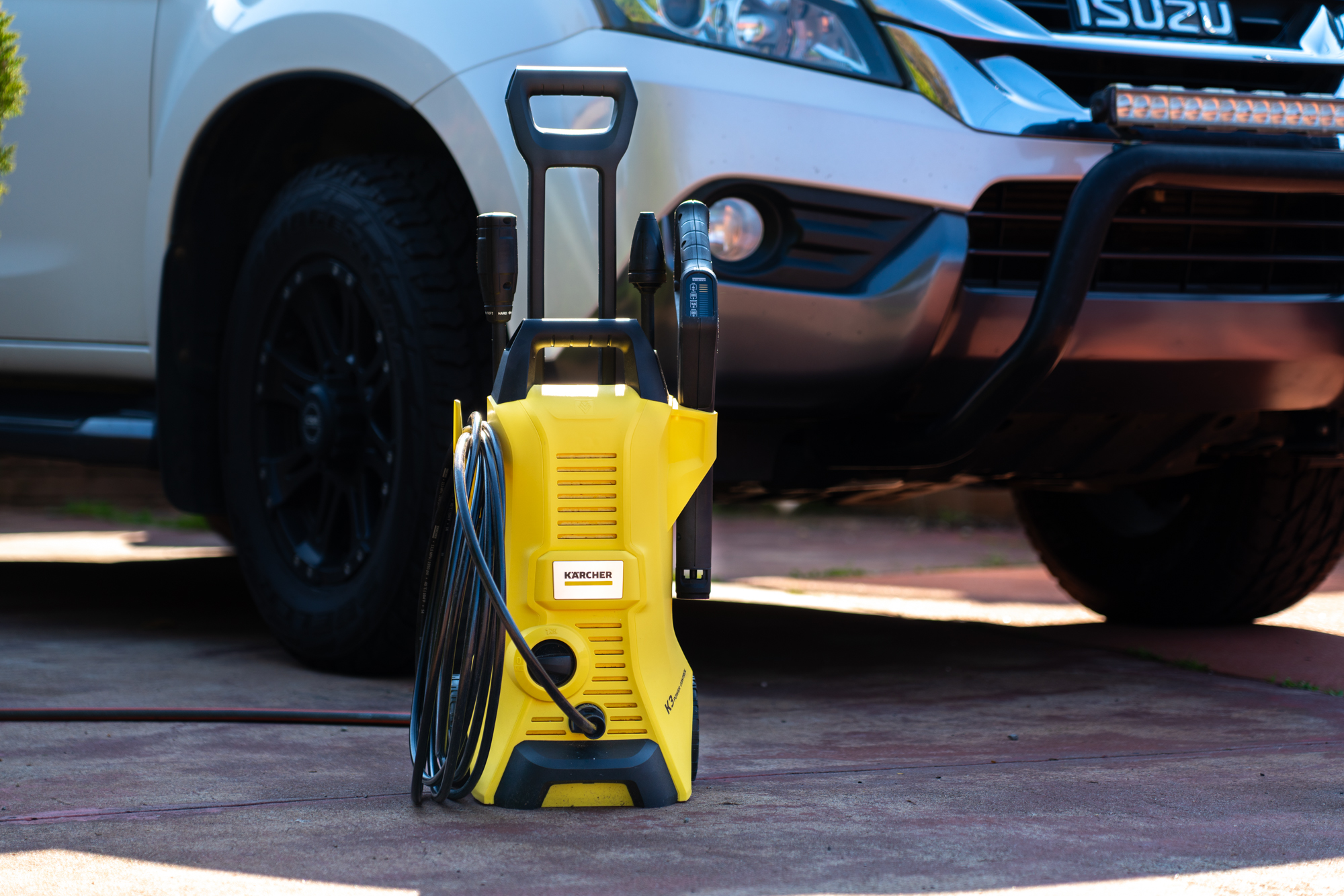
A commercial pressure washer can usually be identified by the price tag, running into many thousands of dollars. These can usually exceed pressures of 3000 PSI and many electric models can heat the water for extra cleaning power. A wider range of petrol driven models are available commercially, but these typically don’t have a hot water feature.
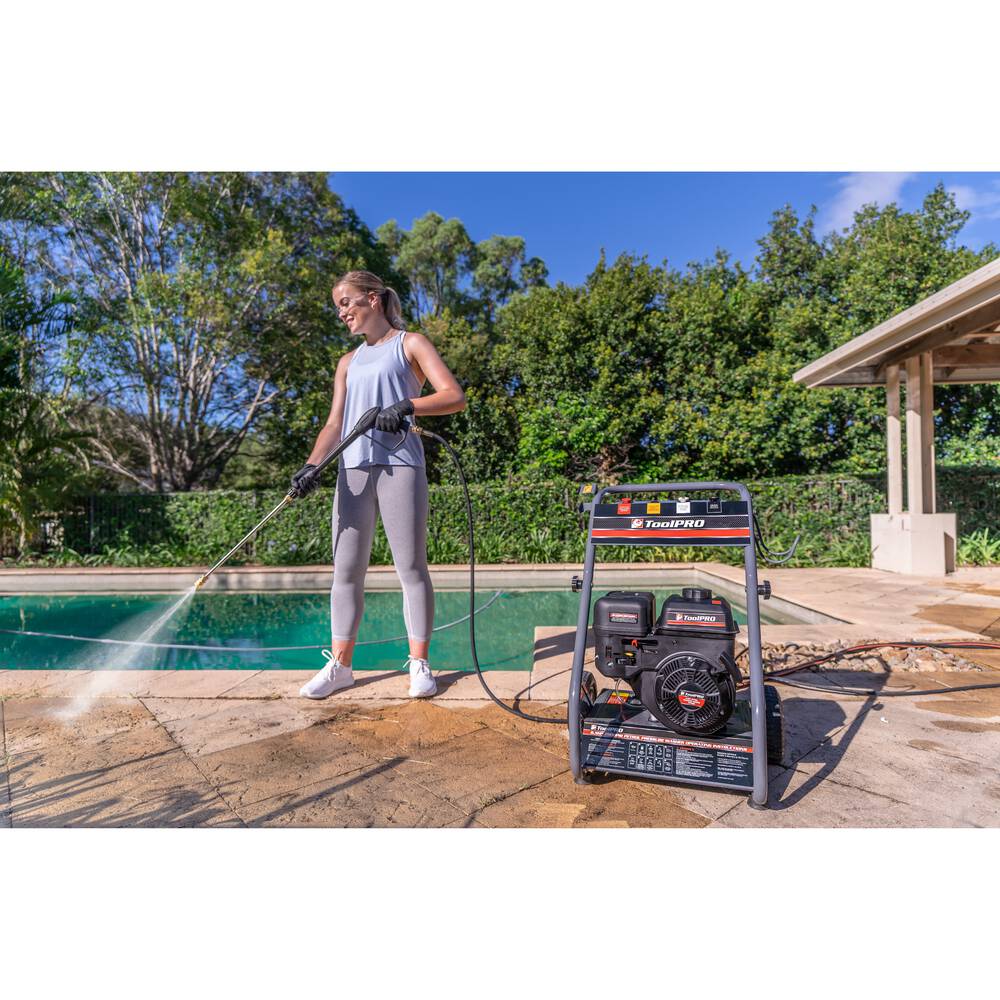
For small jobs requiring lower pressure, a cordless pressure washer may be the one for you. Compact and quick to set up, just snap it onto the garden hose and away you go So what do you need to consider when you go to pick your new pressure washer?
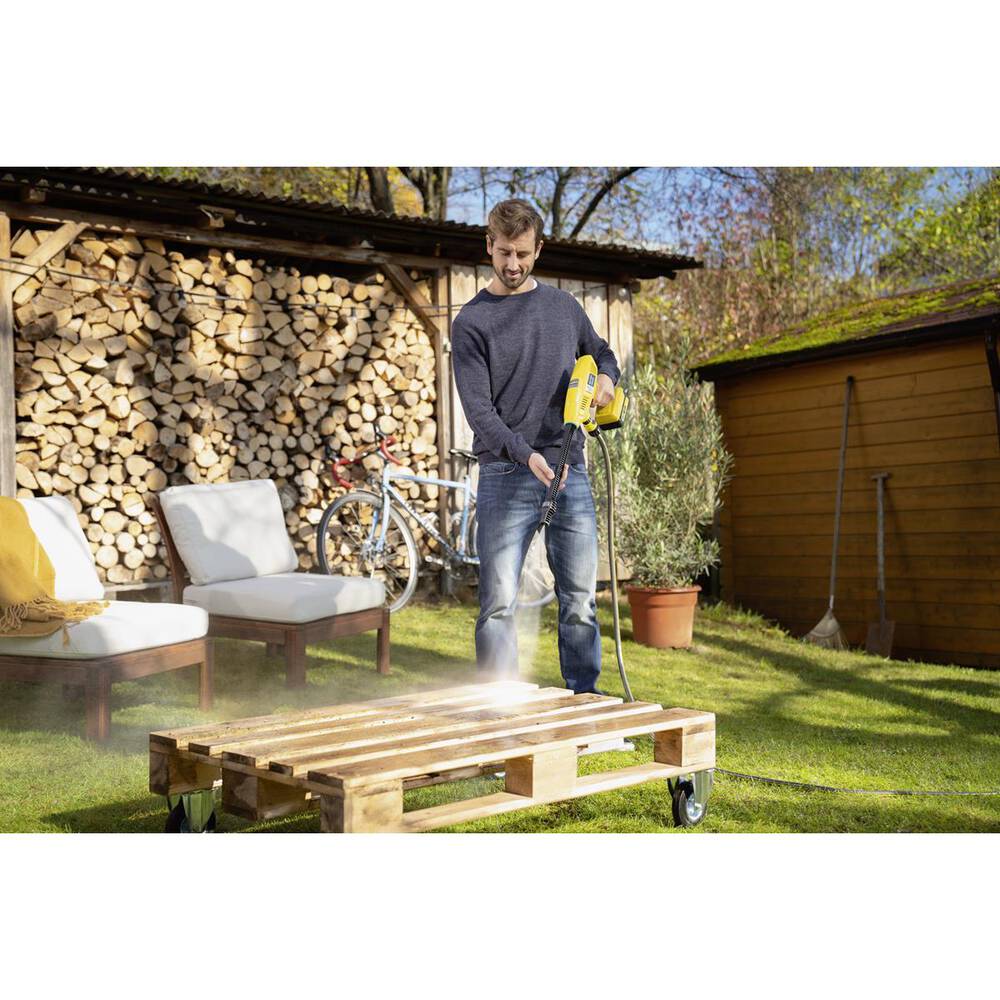
Considerations When Choosing the Right Pressure Washer
1) What pressure washer accessories do you need?
If you intend to use your pressure washer for car cleaning, you’ll certainly want to purchase a foam cannon accessory. Karcher pressure washer owners also have a few car wash brushes to choose from. For cleaning driveways, decks, and pavement; a surface cleaner or patio cleaner should certainly be on your list.
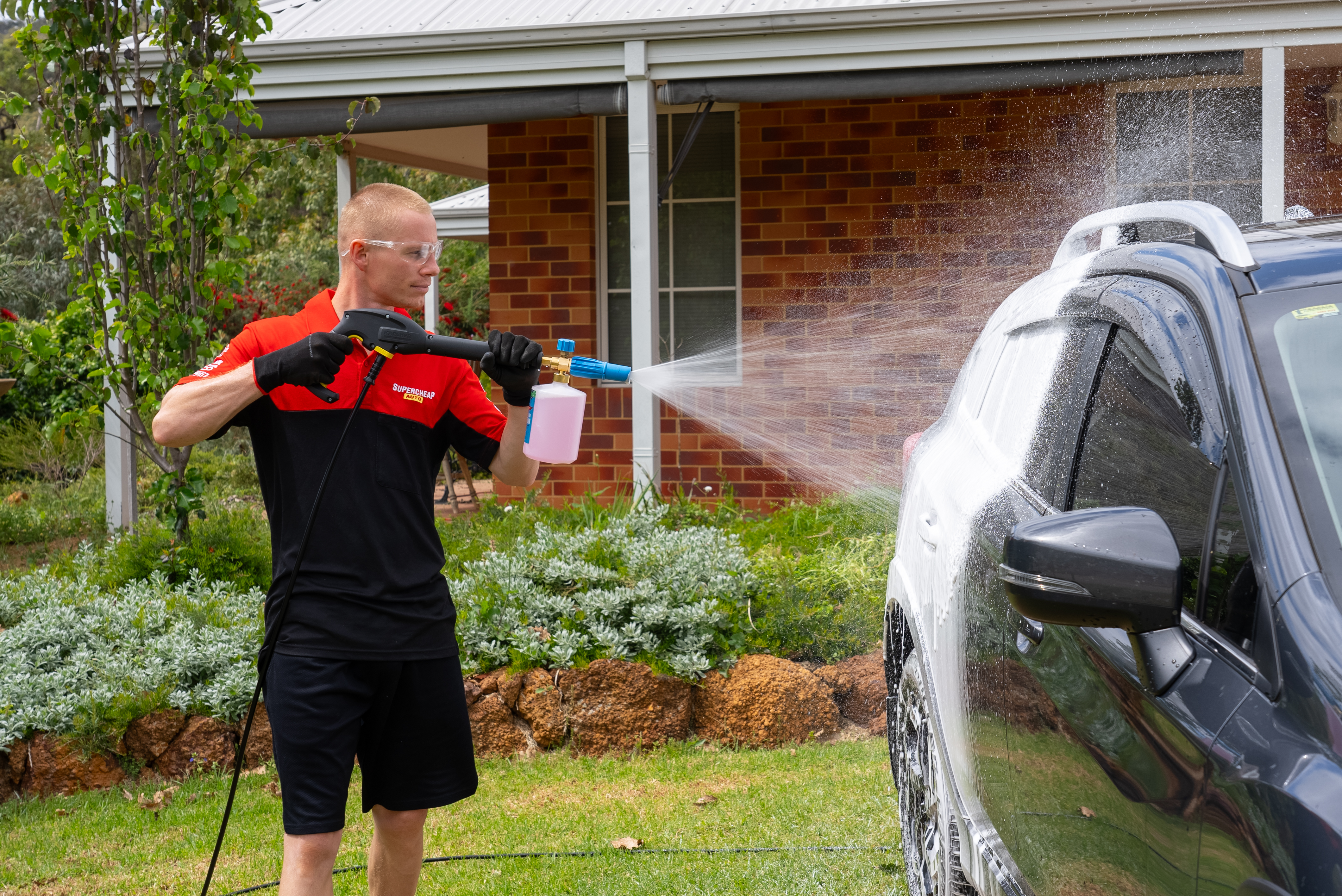
If you plan on drawing water from a tank or other body of water, first make sure your pressure washer is capable of doing this, and consider purchasing a siphon hose and water filter to keep foreign matter from causing damage.
2) What water flow and PSI do you need?
The correct psi for pressure washer jobs should be chosen alongside flow rating as well. PSI (pounds per square inch) is the pressure of the water. A higher PSI will remove more stubborn material.
Flow rate refers to the amount of water used, typically in litres per minute. The higher the flow rate; the quicker the job will get done.
Therefore, you should not base your choice of pressure washer on PSI alone. If the pressure washer you are eyeing off features higher PSI for less money; check that the flow rate is proportionately higher; or you may be disappointed with the performance.
3) What pressure washer size suits your needs?
1300 to 1900psi pressure washers
This is the entry level range of consumer grade pressure washers. This is the best pressure washer for car cleaning including lightly soiled 4X4’s or trail bikes. Around the home it’s great for windows and outdoor furniture, and light cleaning of footpaths and patios.
2000 to 3000psi pressure washers
This is high pressure washer territory. You can typically set the pressure lower to accomplish all of the tasks listed above. When set to high however; caked on mud is SUPER easy to clean from your 4x4, trail bike, and the driveway afterwards. You’ll easily cover larger areas like the driveway, patio and walls. Moss, algae, mould and mildew don’t stand a chance and even oil stains will disappear.
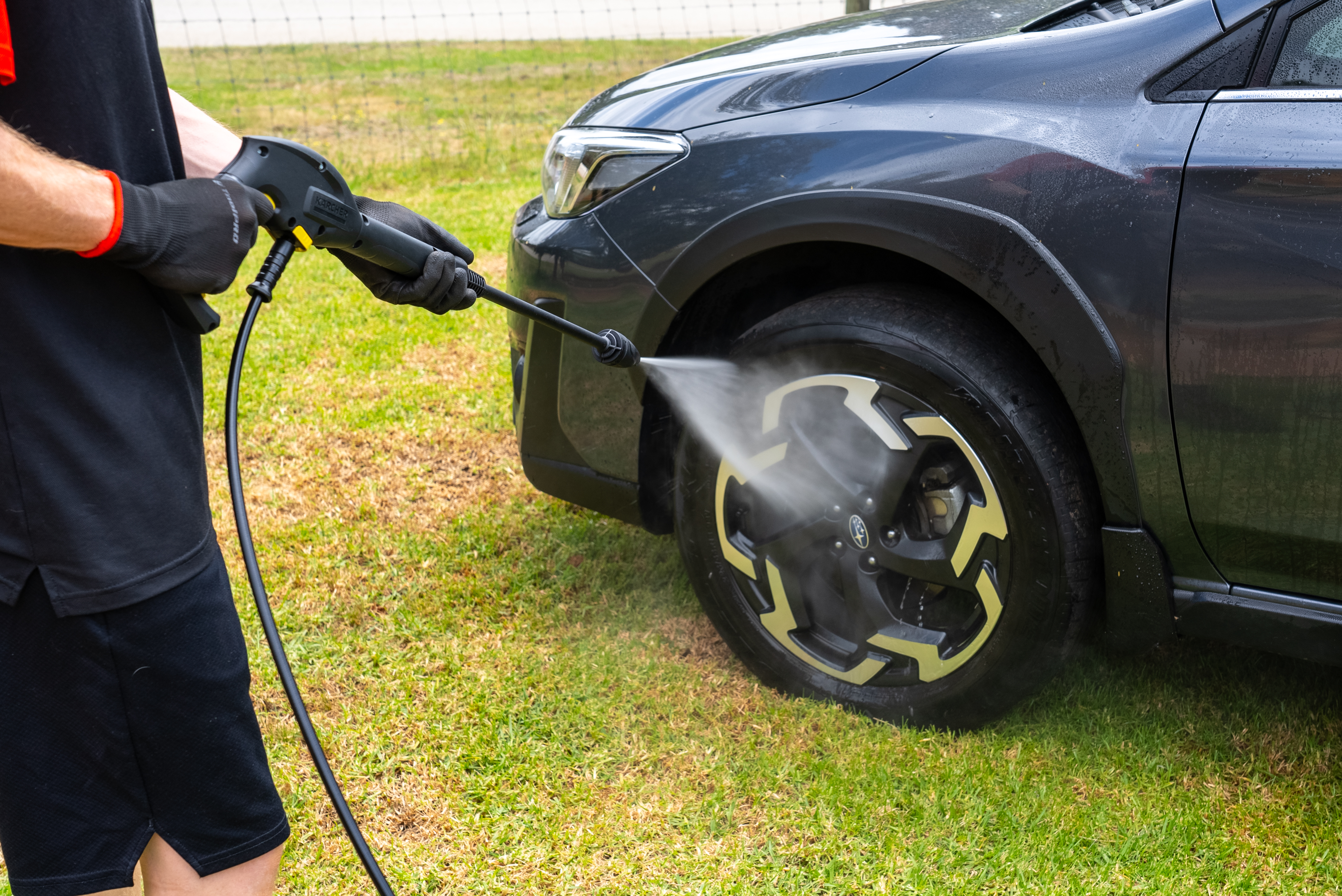
2500 to 4000psi commercial pressure washers
Now we’re in commercial pressure washer territory. Commercial pressure washers are designed for everyday use over large areas and can even strip paint in addition to completing all of the tasks mentioned previously. You’ll have to take care to set the pressure lower for many tasks to avoid causing damage.
Don’t forget if you are feeling spoiled for choice and you’d like a bit of a hand there is always a friendly team member who can help you in store.
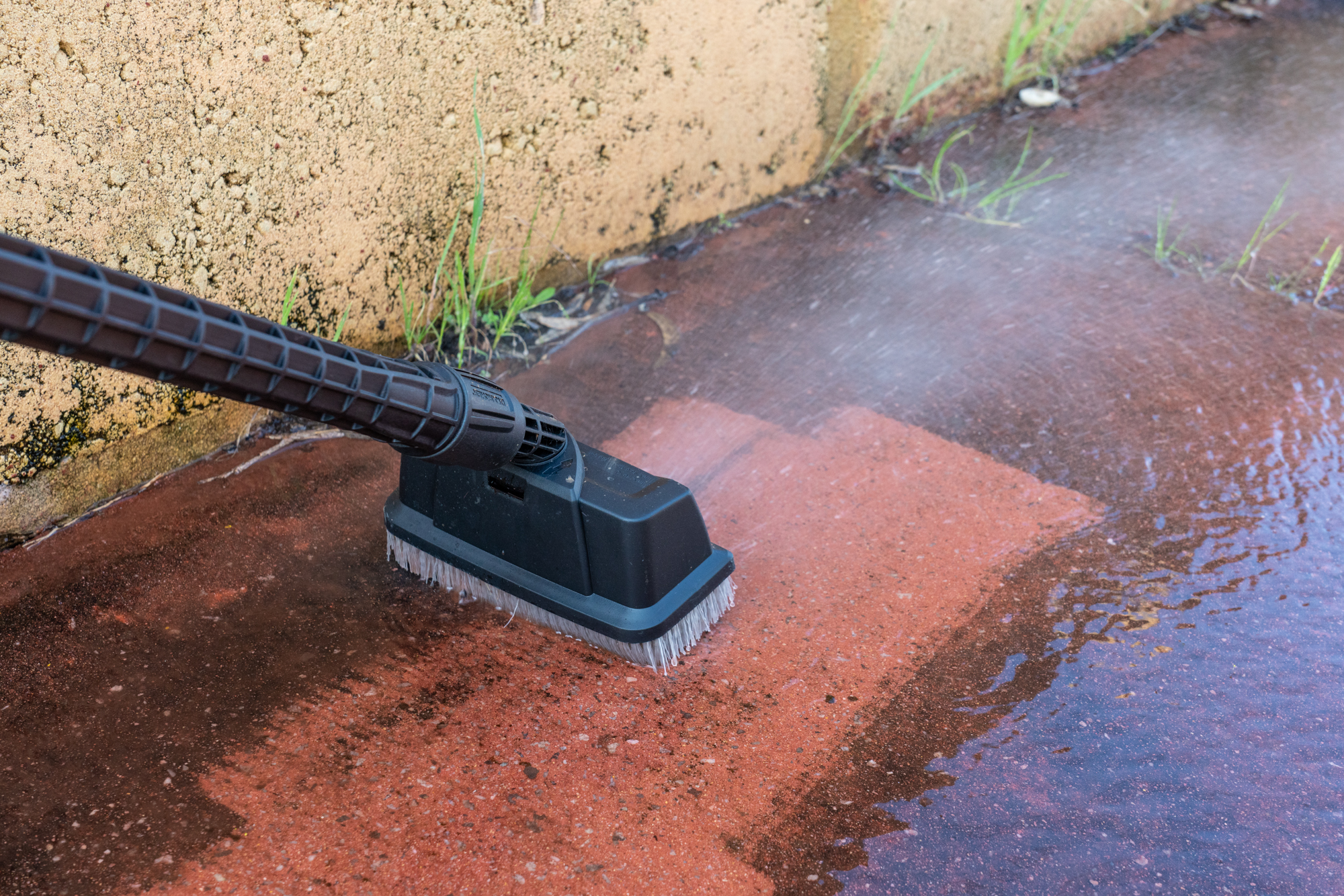
FAQs
How long should a pressure washer last?
A pressure washer can be expected to last from 2 years for a basic model, up to 10 years for a commercial model constructed of premium quality materials. This lifespan of course depends on how often it is used, and how well you care for it. Always run water through your pressure washer to remove any air before switching it on, and never allow the pump to run dry. After use with the pressure washer switched off; squeeze the trigger to drain the remaining water. This will help prevent corrosion.
A petrol powered pressure washer has all the additional maintenance requirements typical of a combustion engine.
Can pressure washers overheat?
Yes, pressure washers can overheat. In a petrol combustion pressure washer, low oil level, blocked cooling fins or excessive use at high RPM are the most likely causes for overheating. In an electric pressure washer poor ventilation, low water pressure or prolonged use beyond what the pressure washer was designed for will usually be the cause for overheating.
Are pressure washer attachments universal?
Pressure washer attachments are universal to a degree. For example, Karcher pressure washer attachments will only suit Karcher pressure washers, and the same for Gerni pressure washer attachments. If you purchase a universal pressure washer attachment, it will typically come with an adaptor so that the accessory can be used with a variety of pressure washer brands. A select few pressure washers feature a more universal coupler similar to a nitto air fitting. In this case, accessories can be used universally without an adaptor.
*Important information* - Click here to read more about our How-To terms and conditions.